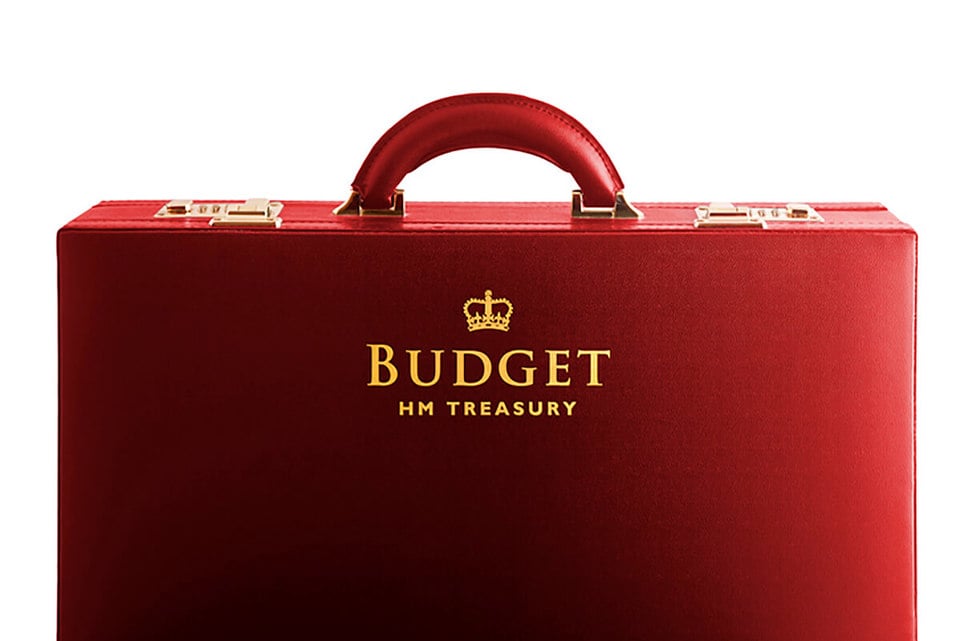The chancellor declares Budget 2014 as a Budget for the makers, the doers and the savers.
For the fleet industry, there was clarity on future tax rates and a promise to simplify employee benefits and expenses.
In response to the Office of Tax Simplification (OTS) review of employee benefits and expenses, the Government said it will consult on four simplifications including abolishing the £8,500 threshold, voluntary payrolling of benefits, a trivial benefits exemption and a general exemption for non-taxable expenses.
The Government also intends to review the rules underlying the tax treatment of travel and subsistence expenses, and will call for evidence on remuneration practices to inform any future reforms.
This was the chancellor’s fifth Budget since the Coalition Government took power in 2010 and his penultimate one before next year’s general election.
There were no great giveaways, but there was good news in terms of economic growth.
The Office of Budget Responsibility (OBR) revised its growth forecast up again, saying the economy will grow 2.7% in 2014, 2.3% next year, 2.6% in 2016 and 2017 and returns to long-term trend of 2.5% thereafter.
ACFO and the BVRLA had urged the chancellor to use the Budget to encourage the take-up of ultra-low emission vehicles (ULEVs).
Both organisations wanted the Government to ditch its plan to increase the benefit-in-kind (BIK) tax rate on electric vehicles from zero to 5% in 2015/16.
Currently, drivers who choose a plug-in vehicle with zero emissions do not pay any BIK tax, but they will face a tax bill for the first time next year.
Company car tax rates will also increase from April 6 and have been announced for the following two tax years, 2015/16 and 2016/17, but were unknown from 2017/18 onwards.
ACFO has also called on the chancellor to clarify the rates for 2017/18, so that fleets will again have a four-year cycle of advance notification of thresholds.
Budget 2014 gives fleets further clarity on company car tax by clarifying the rates for 2017-18 and 2018-19, but there was no scrapping of the 5% BIK tax rate for EVs.
The appropriate percentage of list price subject to tax will increase by 2 percentage points for cars emitting more than 75g/km, to a maximum of 37%, in both 2017-18 and 2018-19.
In 2017-18, there will be a 4 percentage point differential between the 0-50 and 51-75g/km bands and between the 51-75 and 76-94g/km bands.
In 2018-19 this differential will reduce to 3 percentage points. The differential will reduce further to 2 percentage points in 2019-20 in line with the Budget 2013 announcement.
The Government says in the Finance Bill that it remains committed to reviewing incentives for ultra-low emission vehicles in light of market developments at Budget 2016, to inform decisions on CCT from 2020-21 onwards. Legislation will be in Finance Bill 2015.
ACFO and the BVRLA also wanted the Chancellor to announce that BIK should be calculated according to the price of the model minus the £5,000 plug-in car grant, but the chancellor ignored their calls.
He did confirm, however, that VED rates for cars, motorcycles and the main rates for vans will increase by RPI from 1 April 2014.
As announced at Autumn Statement 2013, the Government will introduce legislation to reduce tax administration costs and burdens by making the following changes with effect from 1 October 2014:
- Motorists will be able to pay their VED by direct debit annually, biannually or monthly, should they wish to do so. A 5% surcharge will apply to biannual and monthly payments.
- A paper tax disc will no longer be issued and required to be displayed on a vehicle windscreen.
The chancellor had already announced that fuel duties are going to remain frozen until September 2015 and he confirmed that in today’s speech.
The Treasury suggests that the Government’s action on fuel duty will save a typical motorist £680 by 2015-16.
Andrew Hogsden, senior manager, Strategic Fleet Consultancy at Lex Autolease, said: “Fuel costs remain a significant overhead for businesses that operate vehicle fleets.
“Although the pledge to freeze fuel duty for the remainder of this Parliament was a step in the right direction, we would have liked to see the Chancellor go further and announce a cut in fuel duty.
“Reducing this burden would provide business with a much needed cash-flow boost as they look to capitalise on the opportunities presented by the recovering economy.”
The chancellor has also introduced fuel duty incentives for methanol. From April 2015, the government will apply a reduced rate of fuel duty to methanol.
The rate will be set at 9.32 pence per litre. The size of the duty differential between the main rate and methanol will be maintained until March 2024.
The Government will review the impact of this incentive alongside the duty incentives for road fuel gases at Budget 2018.
From April 6, 2015, the Fuel Benefit Charge multiplier for both cars and vans will increase by RPI. For the Van Benefit Charge, the main VBC rate will increase by RPI from April 6, 2015.
The Government will extend VBC support for zero emission vans to 5 April 2020 on a tapered basis.
In 2015-16 the VBC rate paid by zero emission vans will be 20% of the rate paid by conventionally fuelled vans, followed by 40% in 2016-17, 60% in 2017-18, 80% in 2018-19 and 90% in 2019-20, with the rates equalised in 2020-21.
The Government will review VBC support for zero emission vans in light of market developments at Budget 2016.
In addition, Budget 2014 provides an extra £200 million, across the UK, to set up a potholes challenge fund, which will be welcomed by fleets. This emergency funding set aside by government will allow local authorities to repair up to 3.2 million potholes following the severe weather.
Find out what the Budget announcements on BIK mean for salary sacrifice at our Fleet News salary sacrifice seminar – April 10 at Hanbury Manor, Ware, and May 13 at Cranage Hall, Cheshire. Click here for details.





















Rosco - 19/03/2014 17:20
One thing you seem to have missed from this useful summary, is the Mersey Gateway Funding. Which although tax payer funded to build will be a toll charge. And the existing Runcorn Bridge is likely to become a toll bridge as well. Nice little earner for the company who gets to run it.